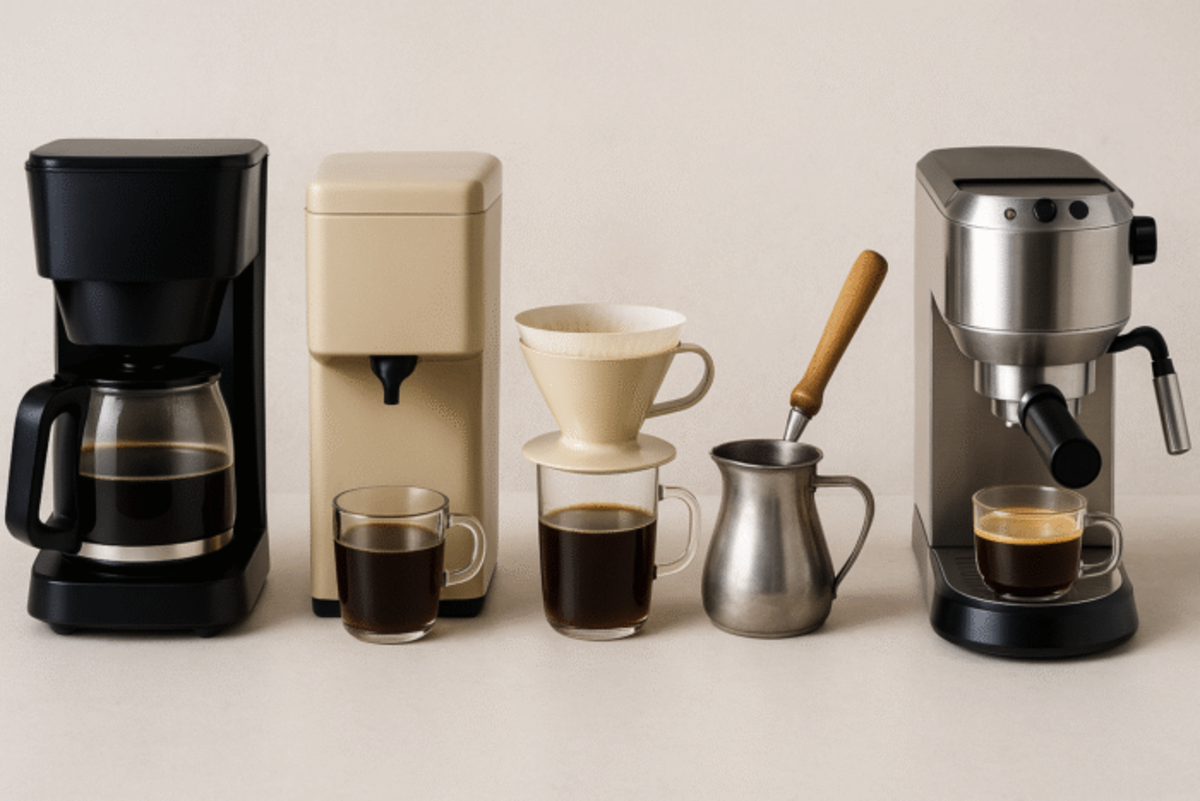
Swedish Study Links Workplace Coffee Machines to Higher Bad Cholesterol Levels
Dubai, August 9, 2025 – (Qahwa World) – A new Swedish study has raised fresh concerns about how workplace coffee machines could be silently impacting heart health. Researchers from Uppsala University and Chalmers University of Technology have found that the way coffee is brewed plays a decisive role in determining its effect on cholesterol levels—particularly low-density lipoprotein (LDL), often called “bad” cholesterol.
The peer-reviewed study, published in Nutrition, Metabolism & Cardiovascular Diseases, examined the presence of two naturally occurring coffee compounds—cafestol and kahweol—that are scientifically linked to higher LDL cholesterol. While coffee itself is not harmful, and can even lower the risk of certain diseases, these compounds have been shown to counteract some of coffee’s potential benefits when consumed in high amounts.
Why Workplace Machines Pose a Risk
The researchers focused on self-service coffee machines widely used in offices and public buildings, which typically rely on metal filters rather than paper. This choice of filtration, they discovered, makes a crucial difference. Paper filters trap most of the cafestol and kahweol before they reach the cup, but metal filters allow much more of these compounds to pass through.
Lead researcher Dr. David Iggman explained that some modern workplace machines produce coffee with diterpene levels comparable to boiled coffee—an unfiltered brewing method that Nordic dietary guidelines have advised against since 2023.
The Numbers Tell the Story
Over the course of the study, the team analyzed coffee from 14 workplace machines and compared it with various home-brewing methods. Their findings revealed stark contrasts:
-
Workplace brewing machines (n = 11): median cafestol 176 mg/L, kahweol 142 mg/L
-
Liquid-model machines (n = 3): much lower, median cafestol 8 mg/L, kahweol 7 mg/L
-
Home paper-filtered coffee: median cafestol 12 mg/L, kahweol 8 mg/L
-
Boiled coffee: cafestol 939 mg/L, kahweol 678 mg/L
-
French press / espresso: intermediate to high levels, with espresso showing large variability—sometimes exceeding 2,400 mg/L of cafestol in a single sample.
These differences are not just academic. Using established cardiovascular risk models, the researchers estimated that replacing three cups of machine-brewed coffee per workday with paper-filtered coffee could lower LDL cholesterol by approximately 0.58 mmol/L—a reduction associated with a 13% drop in cardiovascular risk over five years, and as much as 36% over a 40-year career.
A Brewing Method Matters as Much as the Beans
The study reinforces a growing body of evidence that how coffee is prepared is as important as the type of beans or roast when it comes to health outcomes. While specialty coffee lovers often focus on flavor profiles and origin stories, this research underscores that the choice of brewing equipment—especially in workplace environments—can have long-term health implications.
The researchers suggest that organizations could improve staff wellness simply by switching to machines that use paper filters, or by encouraging employees to brew filtered coffee at home and bring it to work.
Global Relevance Beyond Sweden
Although the study focused on Swedish workplaces, its findings are relevant globally, especially in regions where unfiltered coffee methods—such as French press, Turkish coffee, or espresso—are culturally dominant. In many countries, corporate wellness programs already promote healthier food options; integrating coffee brewing guidelines could be a cost-effective addition.
Balancing Enjoyment and Health
Coffee remains one of the world’s most consumed beverages and a source of pleasure for millions. This research does not suggest giving it up, but rather making informed choices about brewing methods to maximize health benefits while minimizing risks.
In the words of Dr. Iggman: “The way coffee is brewed has a measurable effect on cholesterol. By making small changes in preparation, we can keep coffee both enjoyable and heart-friendly.”



